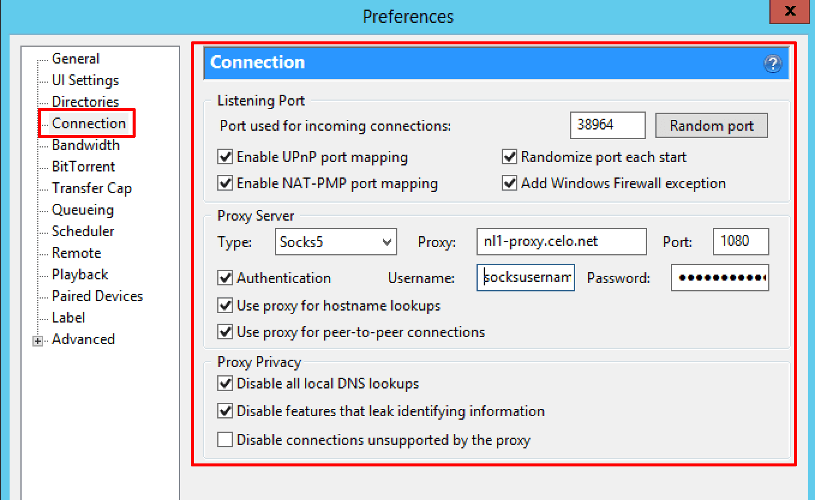A short list of SOCKS Clients that I have used or know of. Note that many programs have their own SOCKS client built in, many FTP clients such as Filezilla, WS FTP, Firefox and so on have built in support.You really need a client when you have an application that must use a proxy server, but the application does not have proxy support. PySocks - a SOCKS proxy in Python PySocks - a platform independent SOCKS proxy written in POP3 Spam Filter Proxy POP3 Spam Filter Proxy is a multiuser POP3 proxy written ArcSoft Panorama Maker 5 Pro for Mac Now with Panorama Maker 5 Pro for Mac, you can produce. The socks5 proxy appears to be broken on uTorrent for MAC. However, I found a workaround. The nature of the problem is the peer communications work fine. In order to establish a SSH connection to your server which will then be an SOCKS proxy, you have to have the SSH server installed on the server side and the client software on the client side of course.
Socks proxy free download - Socks, Secret Socks, Missing Socks Mail Free Trial, and many more programs. The socks5 proxy appears to be broken on uTorrent for MAC. However, I found a workaround. The nature of the problem is the peer communications work fine.
I am using Mac OSX with Socks5 proxy. I would like to config my command line to export http_proxy = XXXX to accelerate my downloading. Are there any tools that can achieve this conversion? I've heard Provixy can do it, but I'm not sure how yet. Can you show me how please?
Thanks.
Jimmy
3 Answers
You could try polipo.
I use it under ubuntu (it should be also available on Mac) and find it can work with the socks proxy either created by ssh -D .. or shadowsocks.
The default is 'no'. I had this issue as well when attempting to deploy some code using. Ssh on mac.
ChalistYou can install it with brew:
And open a config file:
Fill it with the content:
Start polipo with polipo -c ~/.poliporc and now polipo established a http proxy based on your socks5 proxy.
Command line proxy, you can also try proxychains. Configure /etc/proxychains.conf,
then in command line, just run
fangxingfangxingNot the answer you're looking for? Browse other questions tagged proxy or ask your own question.
I'm trying to connect to a Windows server from my Mac using RDC2.1 for Mac.
The problem is the server I need to connect to is guarded by the evil dragon - IP-based access control on a completely separate network.
I have an IP I can get in on, but it's at my office (i.e. a completely separate network).
Because that network isn't set up for VPN, I've set up a SOCKS proxy through an SSH tunnel (which is all working fine).
From my Linux server in my office (the SSH server) I can telnet to port 3389 on the Windows server, no problem. But from my Mac I can't get so much as a squeak out of it. Any ideas?
 simonhampsimonhamp
simonhampsimonhampclosed as off topic by GregD, ZypherDec 21 '10 at 20:00
Questions on Server Fault are expected to relate to server, networking, or related infrastructure administration within the scope defined by the community. Consider editing the question or leaving comments for improvement if you believe the question can be reworded to fit within the scope. Read more about reopening questions here. If this question can be reworded to fit the rules in the help center, please edit the question.
Proxy Client For Windows
2 Answers
You don't need a SOCKS proxy for this; simple SSH port forwarding will work. For example, there's a server at my office I frequently need to access, which we'll call server.example.com. I can't connect to it directly, but I can ssh to myofficemachine.example.com. So I do this:
And then I point my local Remote Desktop client to localhost. This works great, and my setup is almost identical to yours -- a Mac at home, a Linux box at my office, and a Windows server on another work network.
Socks5 Proxy Client For Windows
larsksHow To Use Socks5
You could try using CoRD, a replacement remote desktop app which supports SOCKS proxies.
Download the. For detailed install instructions visit the. Vsphere client for mac download. Function keys Not a tool, but sometimes you are required to press a function key, such as F11 when installing ESXi.